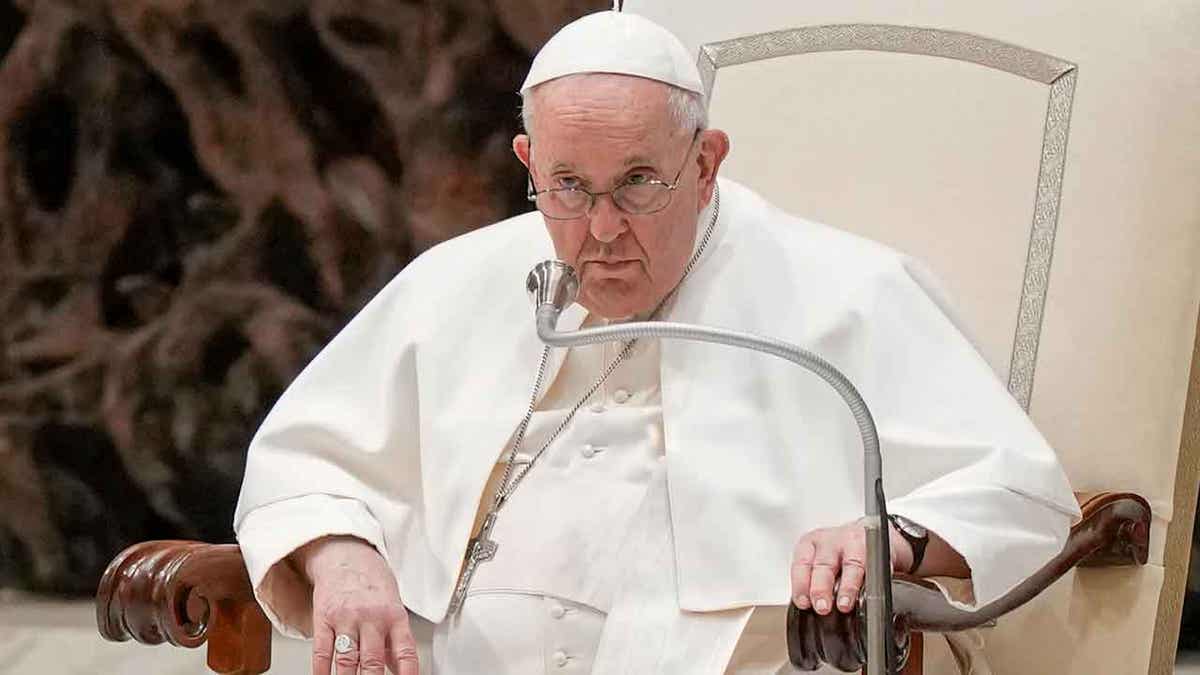Fox News Flash top headlines for April 26
Fox News Flash top headlines are here. Check out what's clicking on Foxnews.com.
Pope Francis has decided to give women the right to vote at an upcoming meeting of bishops, an unprecedented change that reflects his hopes to give women greater decision-making responsibilities and laypeople more say in the life of the Catholic Church.
Francis approved changes to the norms governing the Synod of Bishops, a Vatican body that gathers the world’s bishops together for periodic meetings, following decades of demands by women to have the right to vote.
The Vatican on Wednesday published the modifications he approved, which emphasize his vision for the lay faithful taking on a greater role in church affairs that have long been left to clerics, bishops and cardinals.
Ever since the Second Vatican Council, the 1960s meetings that modernized the church, popes have summoned the world’s bishops to Rome for a few weeks at a time to debate particular topics.
POPE FRANCIS EYES 2024 VISIT TO NATIVE ARGENTINA
At the end of the meetings, the bishops vote on specific proposals and put them to the pope, who then produces a document taking their views into account.
Until now, the only people who could vote were men.
But under the new changes, five religious sisters will join five priests as voting representatives for religious orders.

Pope Francis delivers a speech during his weekly general audience in the Pope Paul VI hall at the Vatican, on Feb. 22, 2023. Francis allowed women to vote for the first time at a recent meeting of bishops. (AP Photo/Andrew Medichini, File)
In addition, Francis has decided to appoint 70 non-bishop members of the synod and has asked that half of them be women. They too will have a vote.
The aim is also to include young people among these 70 non-bishop members, who will be proposed to the pope by regional blocs, with Francis making a final decision.
POPE FRANCIS RENEWS CALL TO PRAY FOR PEACE ON EASTER MONDAY DURING CELEBRATION AT ST. PETER'S SQUARE
"It’s an important change, it’s not a revolution," said Cardinal Jean-Claude Hollerich, a top organizer of the synod.
The next meeting, scheduled for Oct. 4-29, is focused on the very topic of making the church more reflective of, and responsive to, the laity, a process known as "synodality" that Francis has championed for years.
The October meeting has been preceded by an unprecedented two-year canvassing of the lay Catholic faithful about their vision for the church and how it can better respond to the needs of Catholics today.
Cardinal Mario Grech, who is in charge of the synod, stressed that with the changes, some 21% of the gathered representatives at the October meeting will be non-bishops, with half of that group women.
Acknowledging the unease within the hierarchy of Francis' vision of inclusivity, he stressed that the synod itself would continue to have a majority of bishops calling the shots.
CLICK HERE TO GET THE FOX NEWS APP
Hollerich declined to say how the female members of the meeting would be known, given that members have long been known as "synodal fathers." Asked if they would be known as "synodal mothers," he responded that it would be up to the women to decide.
Francis has upheld the Catholic Church's ban on ordaining women as priests, but has done more than any pope in recent time to give women greater say in decision-making roles in the church.
He has appointed several women to high-ranking Vatican positions, though no women head any of the major Vatican offices or departments, known as dicasteries.








































